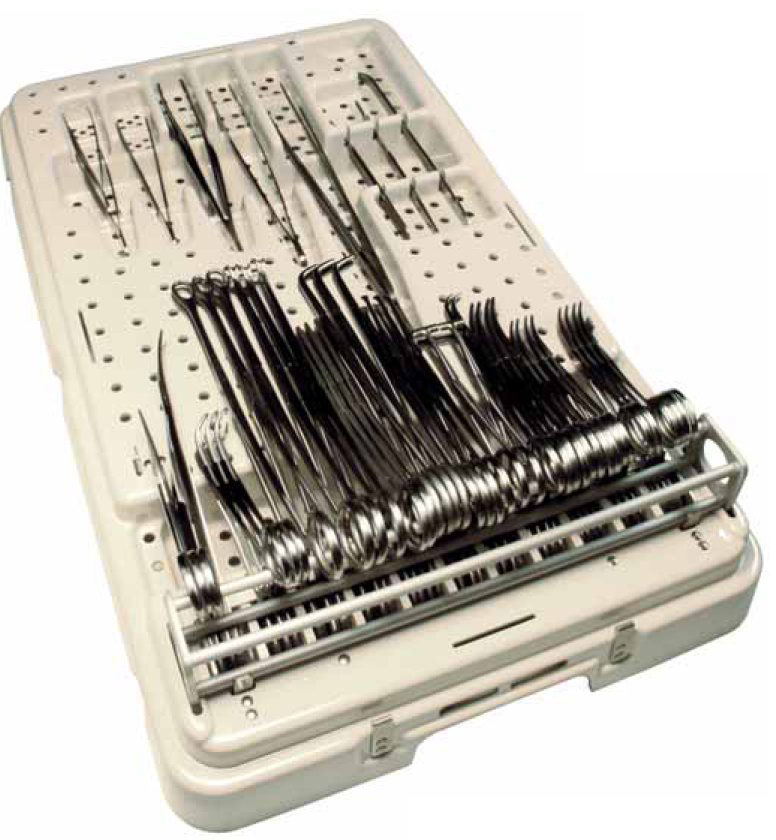Designers are generally familiar with the classification of plastics under the common name thermoplastics, meaning plastics that can be melted and re-moulded, and thermoset, meaning materials which cannot be re-melted; however, it pays to understand the hierarchical structure of commodity, engineering, high performance and ultra polymers. The higher up a plastic is in this pyramid, the more specialized and sophisticated the properties. At the bottom you will find the most standard plastics and at the top is polyphenylsulphone, a high performance plastic for very specific applications.
As in so many instances, plastics are taking the place of metals. For example, the medical industry requires materials and products that are strong, can withstand sterilization, and be moulded into intricate shapes: stainless steel has been the traditional material of choice as it is corrosion resistant and hard wearing, qualities that have remained unsurpassed by other materials for a long time. However, they are limited as it is not easy to make them into complex shapes. Step in polyphenylsulphone, plastics and thermoplastics that are characterized by their transparency, rigidity and stability at high temperatures. This range of materials is designed for harsh environments, where they can withstand temperatures of up to 207°C (405°F). In their natural form they are stable and selfextinguishable, where other materials need modifiers to offer this.
Image: Surgical tray, MacPherson Medical

Key features
•High temperature resistance
•Good chemical resistance
•High impact strength
•Good transparency
•Rigid
•Biologically inert
•Low toxic gas emissions
•Easily processed
•Food grade
Cost
High cost, though Solvay, the makers of Radel®, offer Acudel® (a modified PPSU) as a more cost effective option for less demanding applications.
Sustainability issues
Recyclable.
Production
PPSU resins can be formed using standard plastic moulding techniques. It is also available in sheets, which can be thermoformed.
Typical applications
As has already been mentioned, a high number of applications are in the medical industry, items such as instrument trays and surgical equipment handles and components, which need to be continually sterilized and also to withstand being thrown around. However, PPSUs are also used extensively in the aircraft industry for seats, where they provide low heat release and low smoke and toxic gas emissions.
Derivatives
–Radel®
–Quadrant®
–Ultrason® P
| + | – |
|
–Easy to process –Strong and rigid –Resistant to very high temperatures –Resistant to chemicals –Recyclable |
–High cost limits use to specialist applications –Poor UV-resistance |
